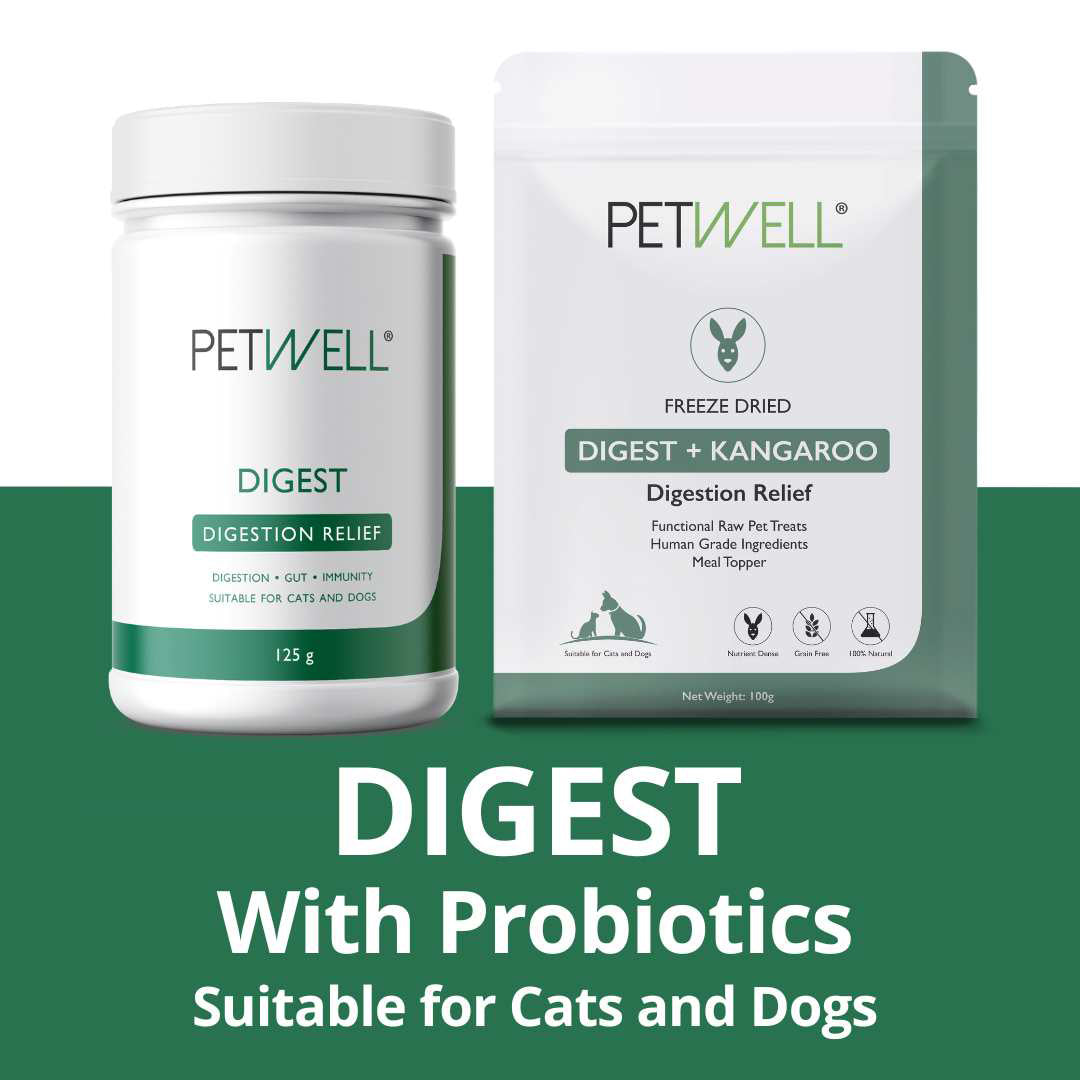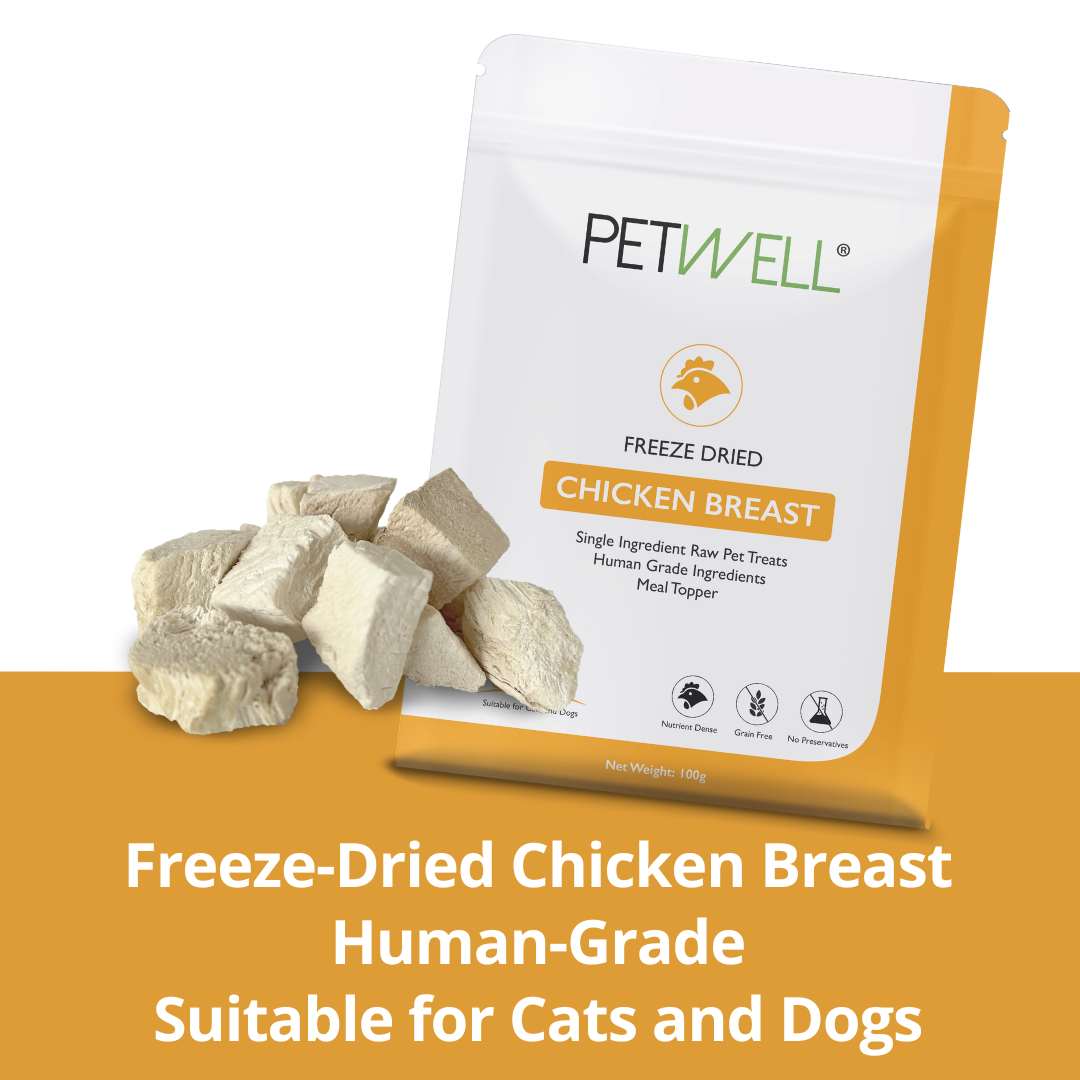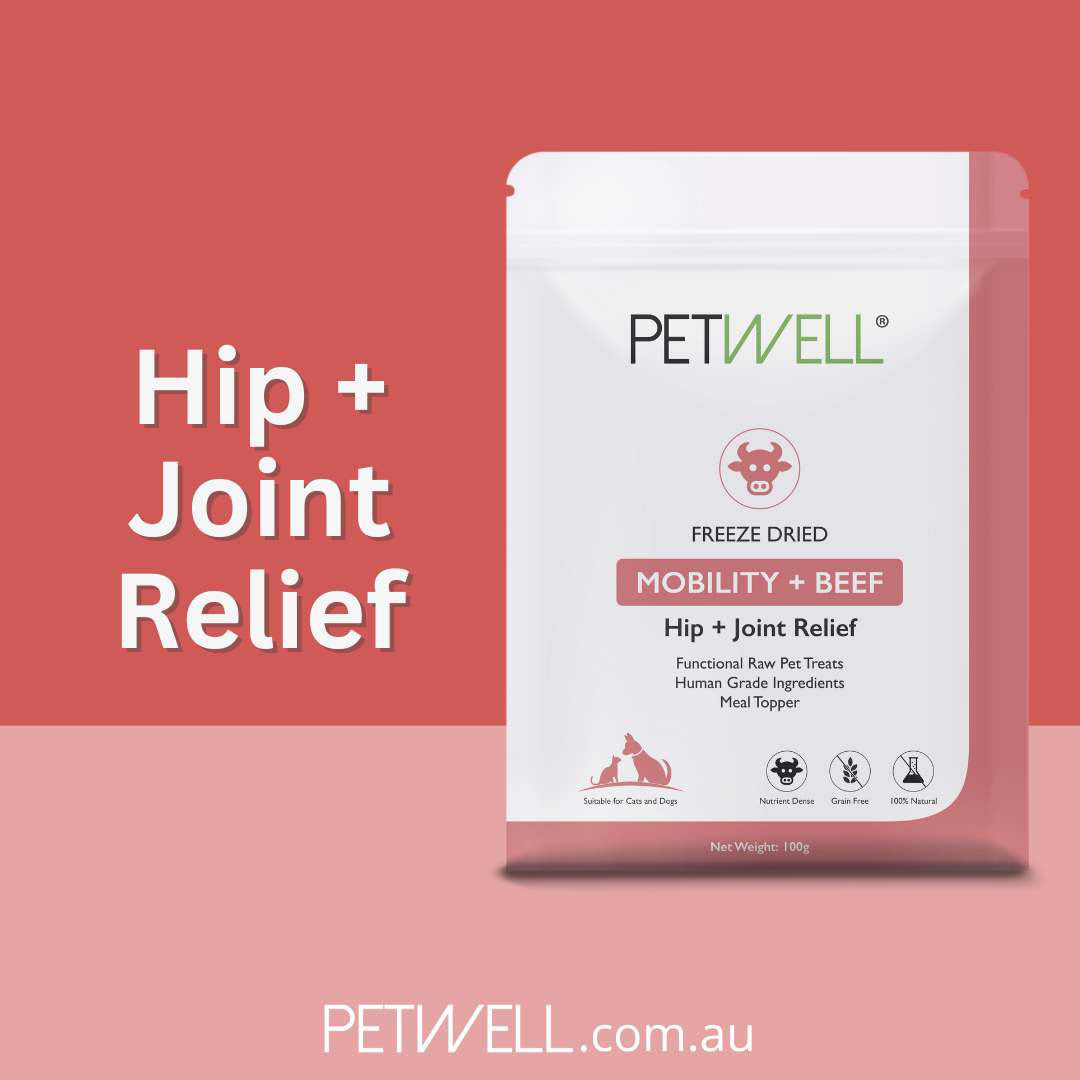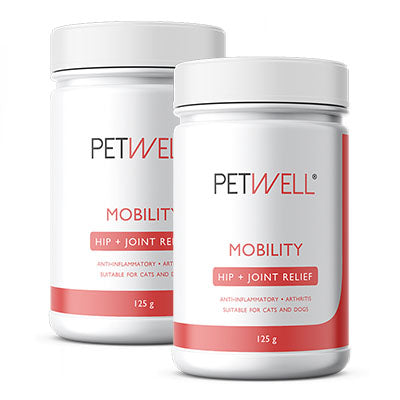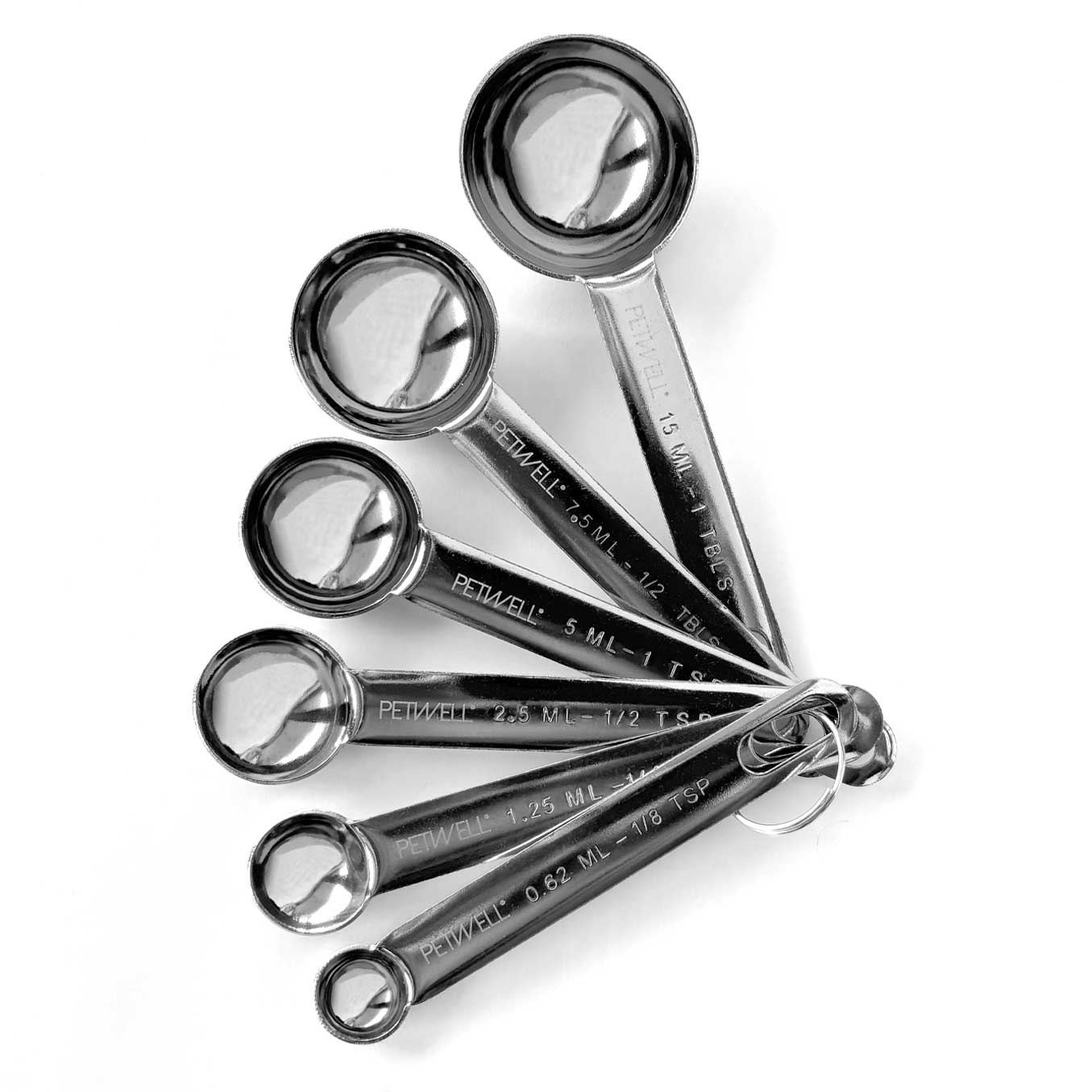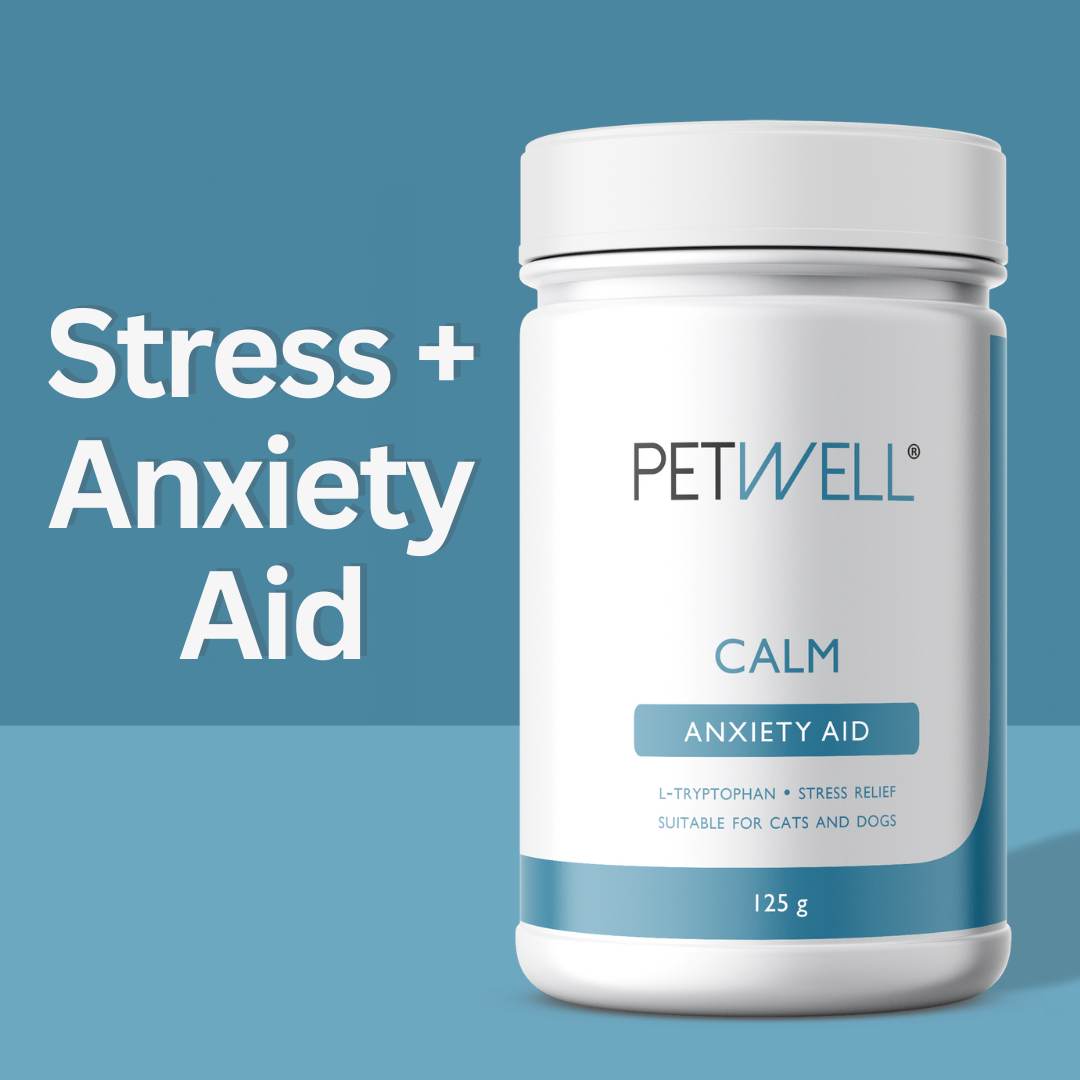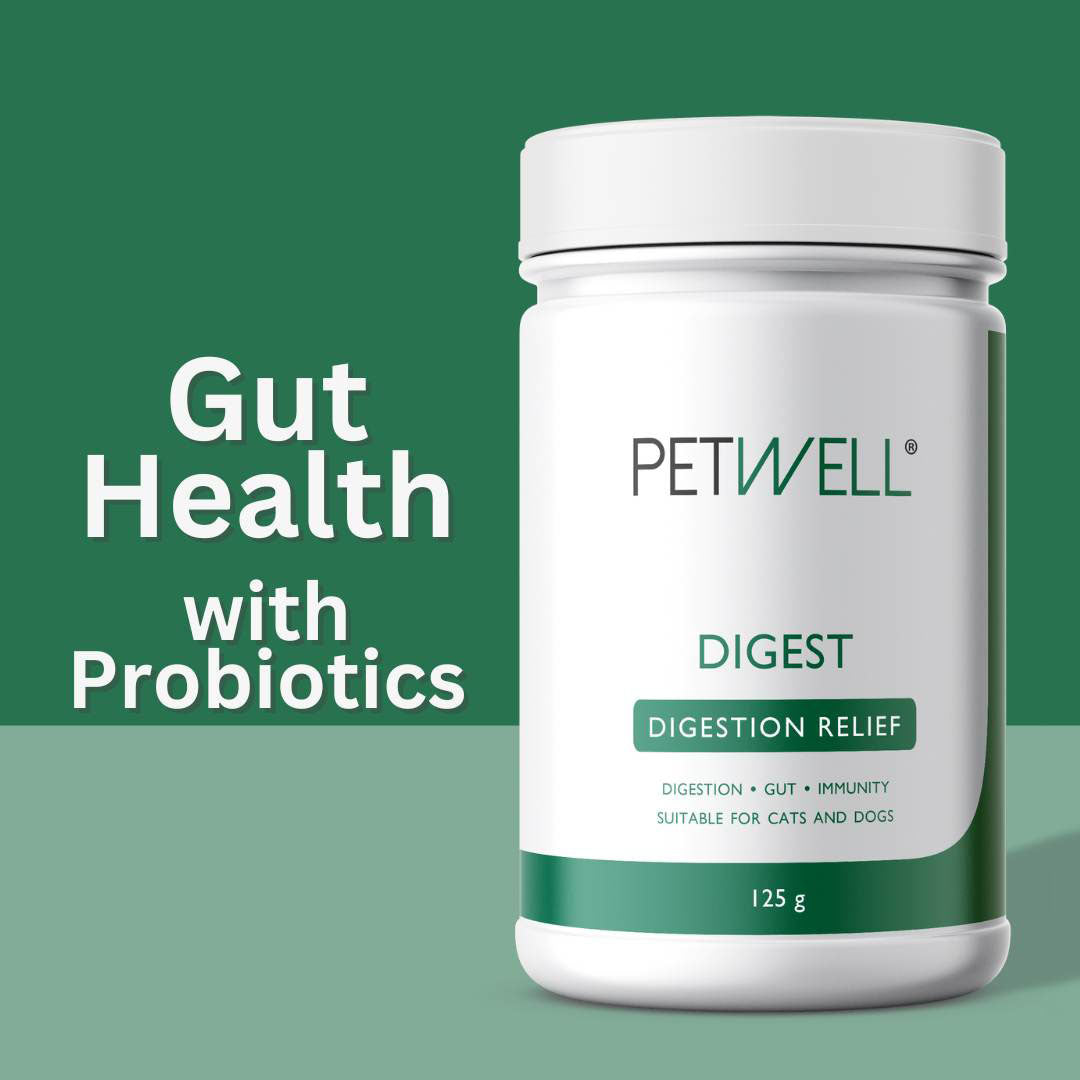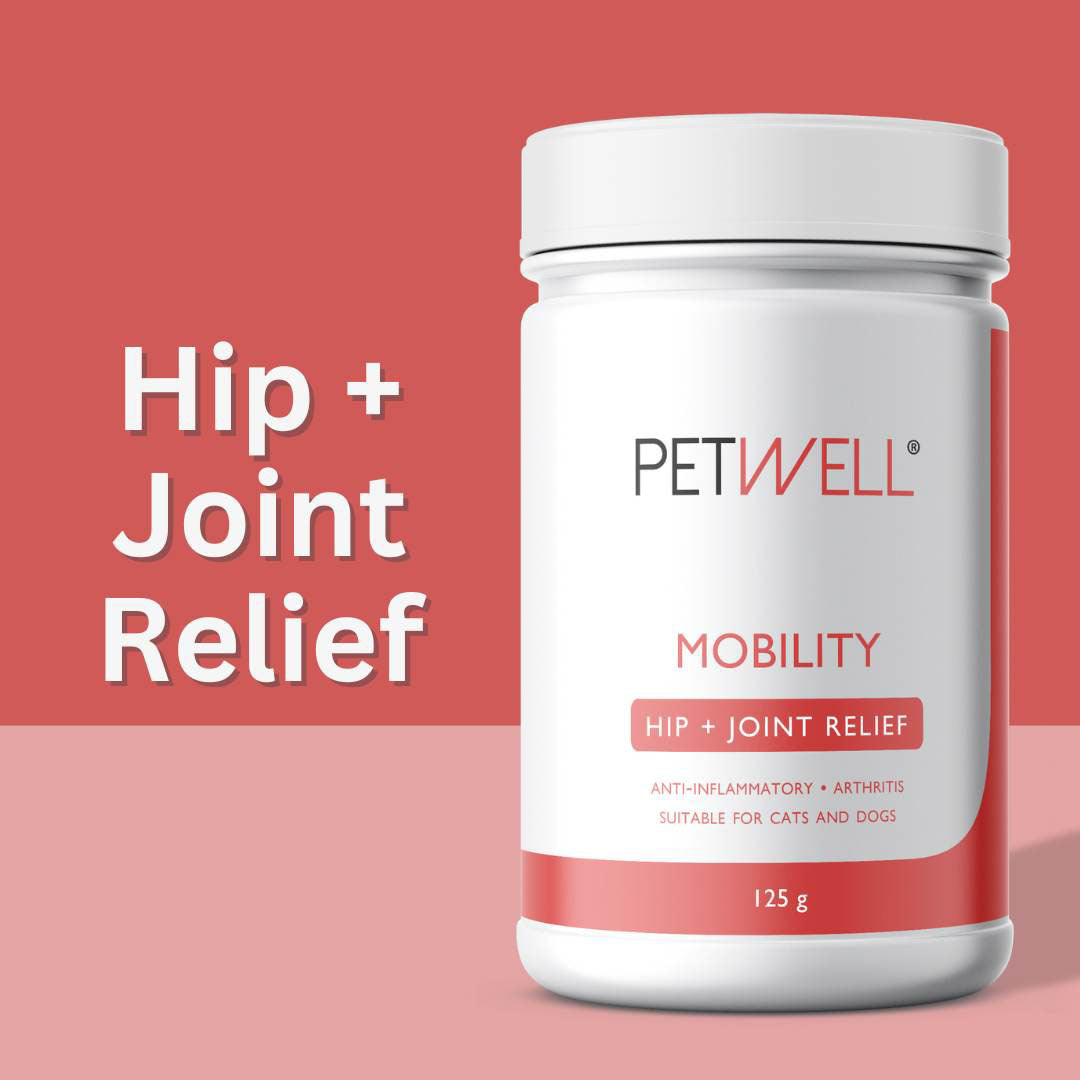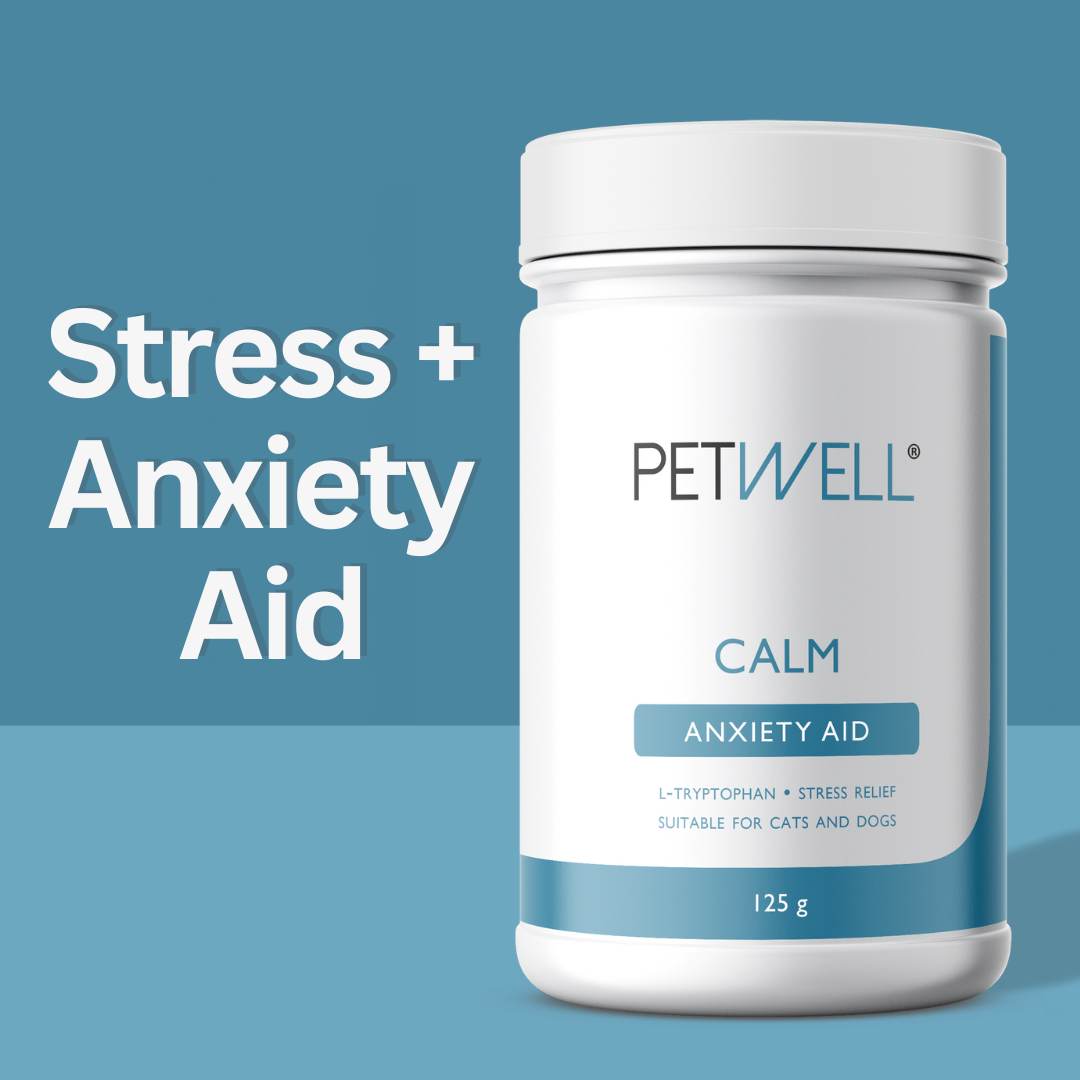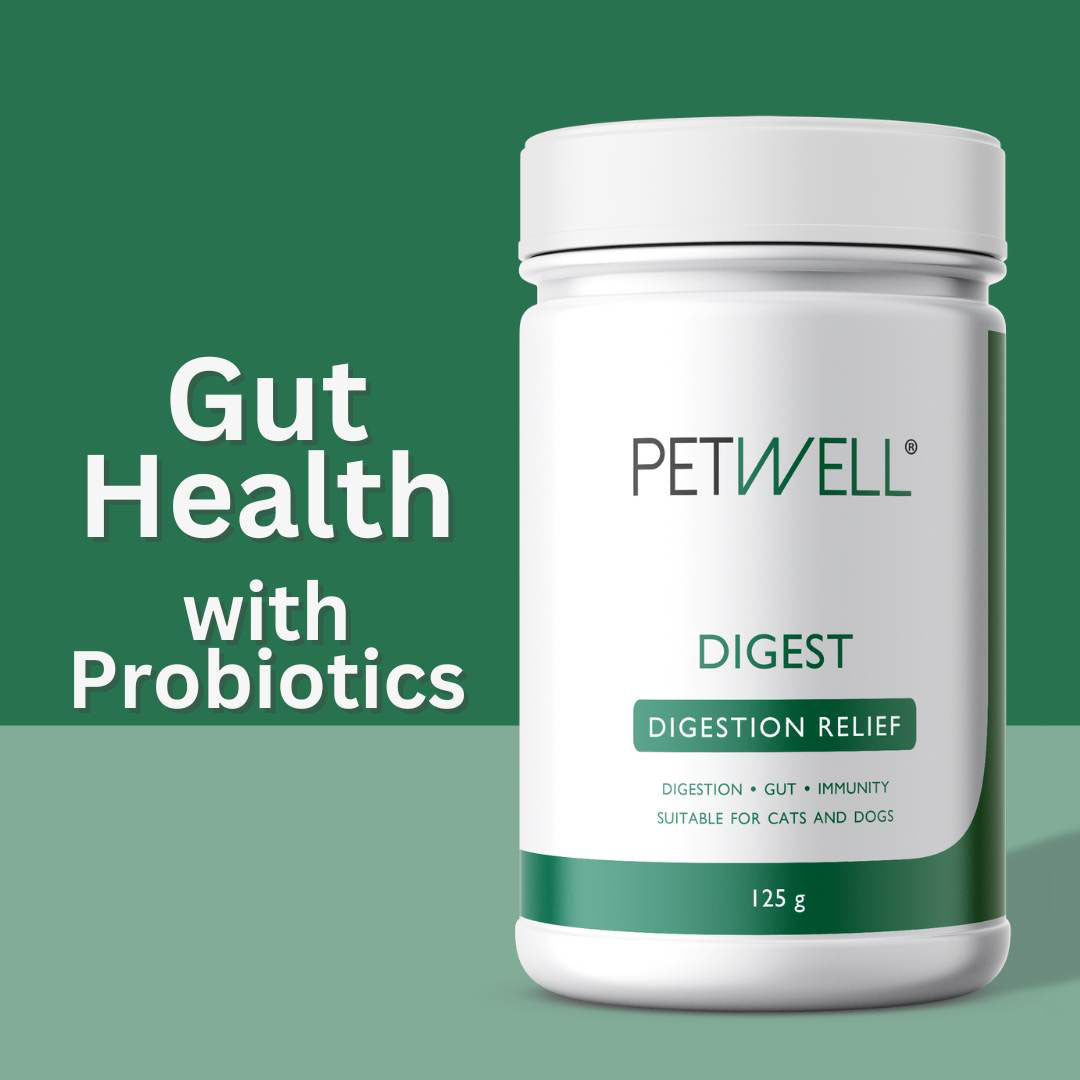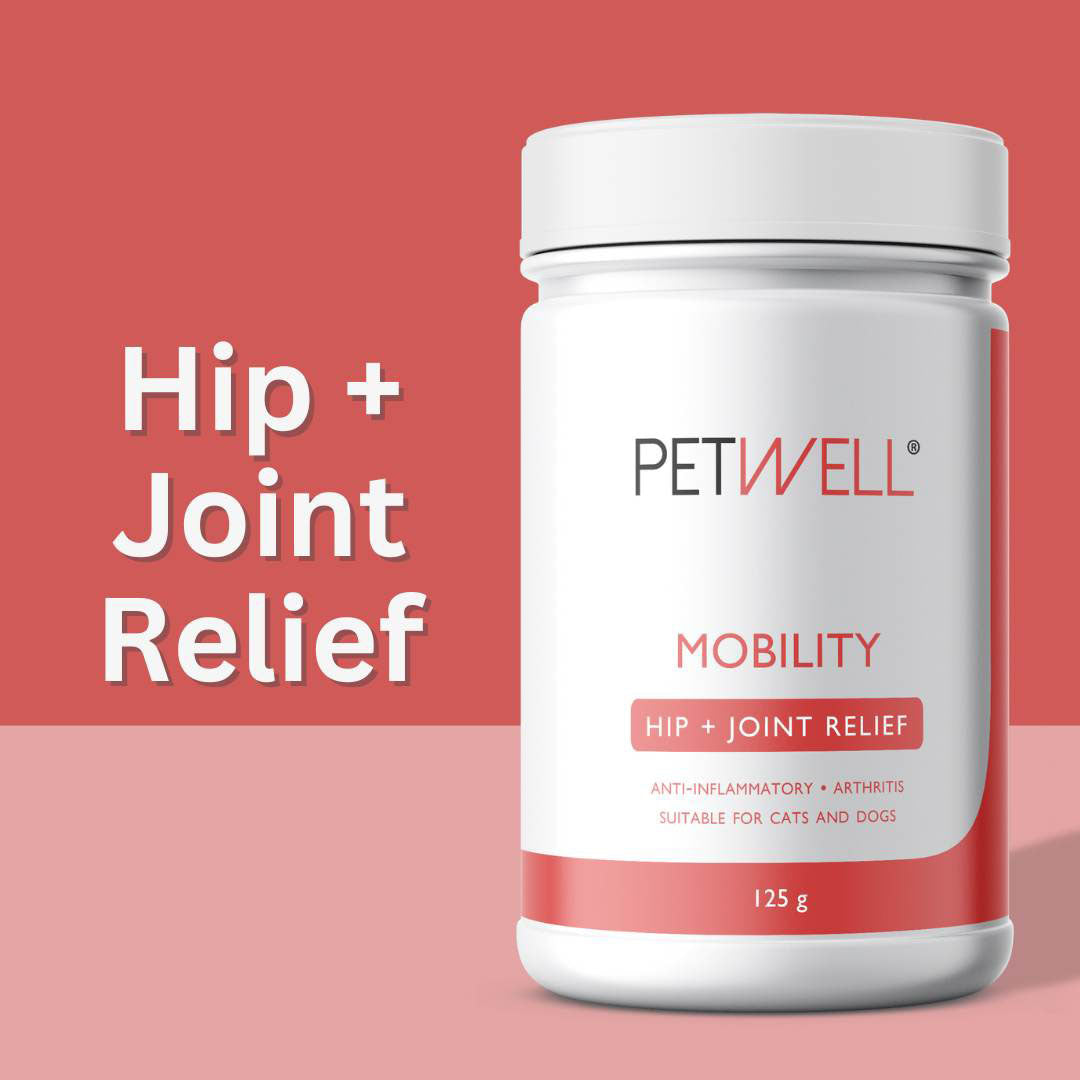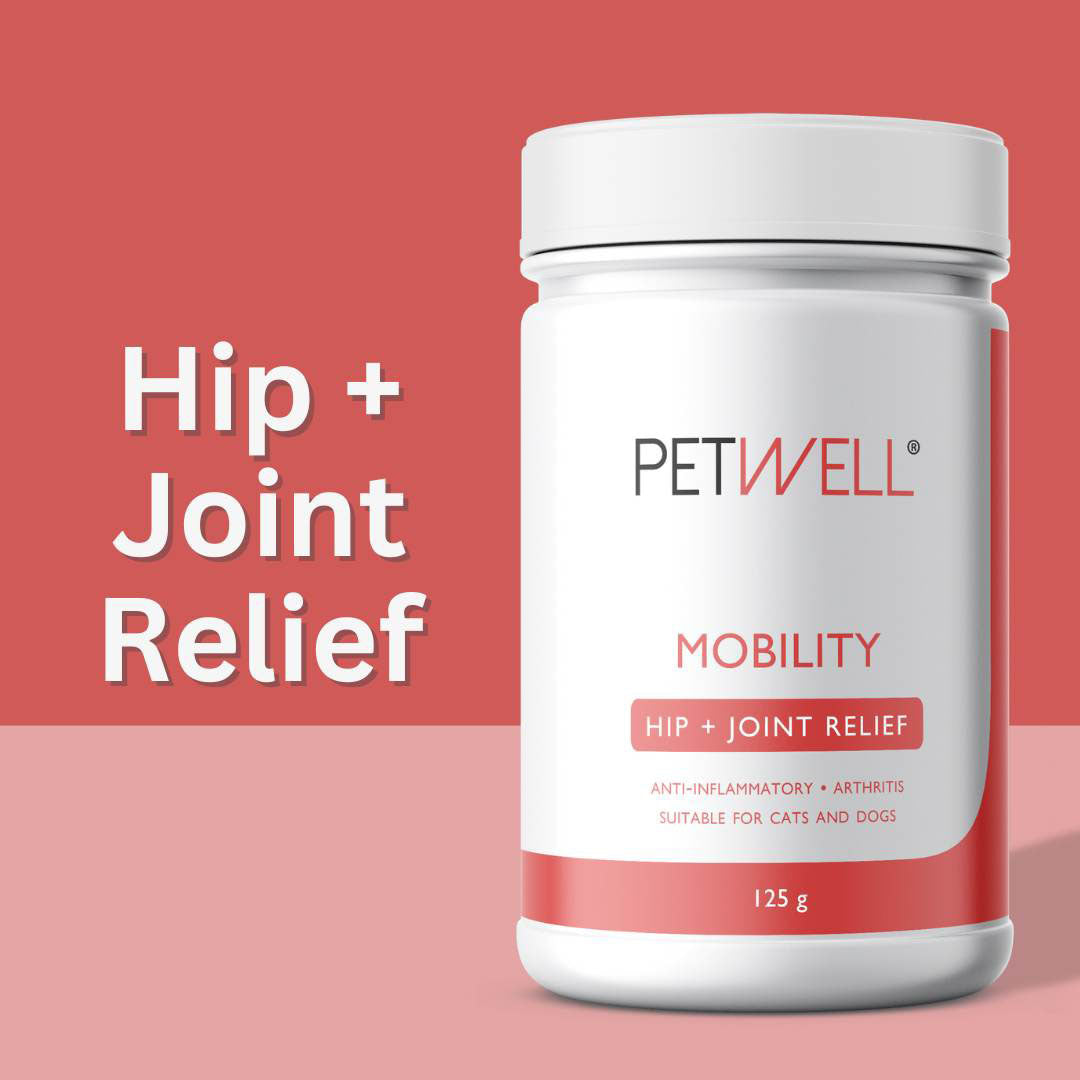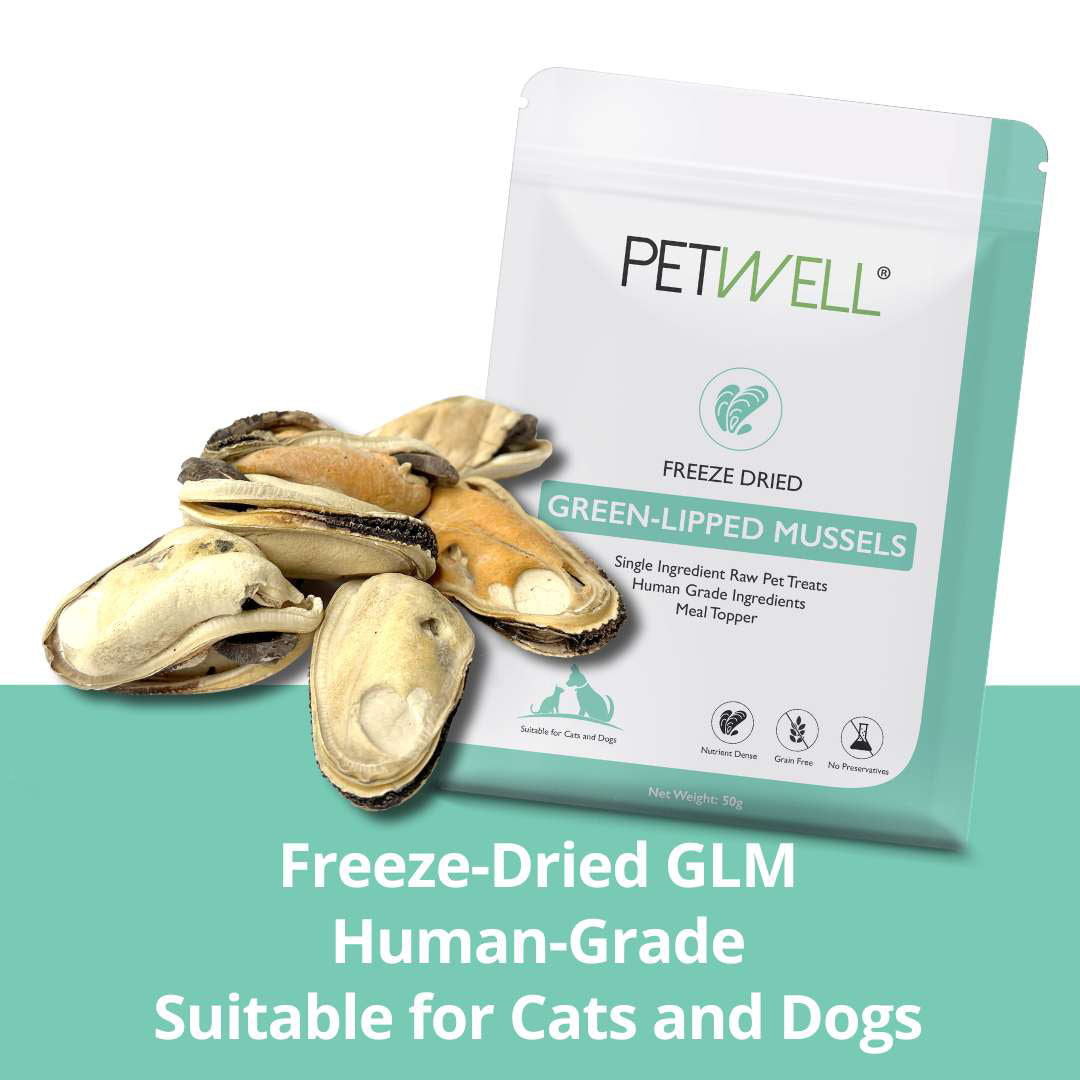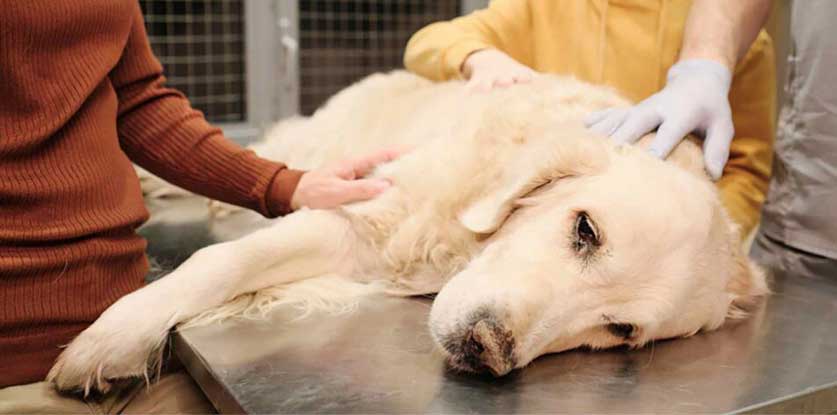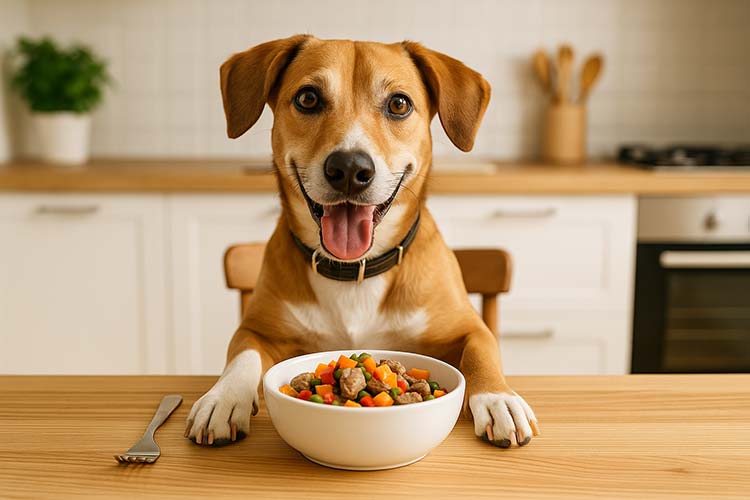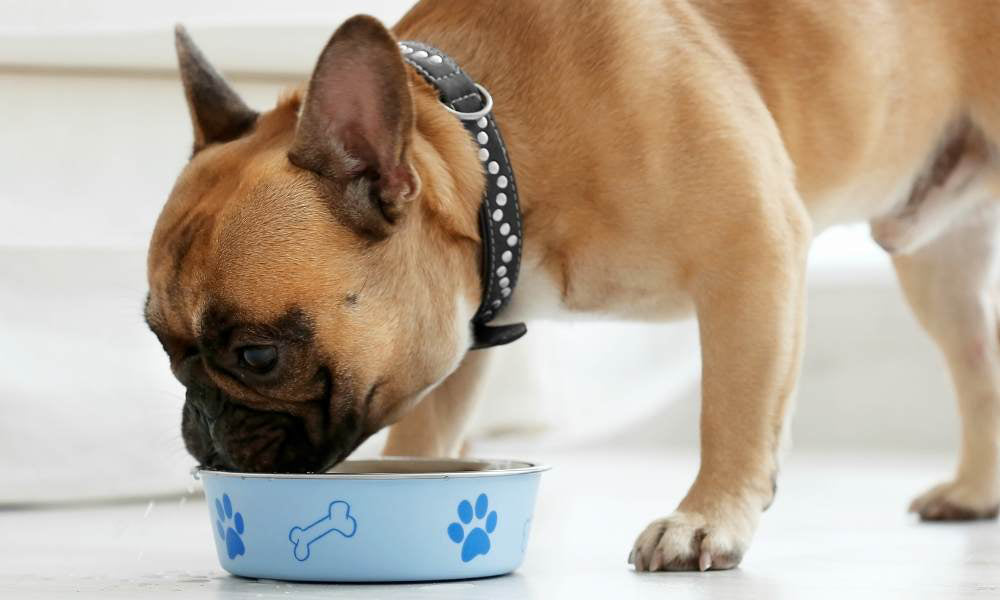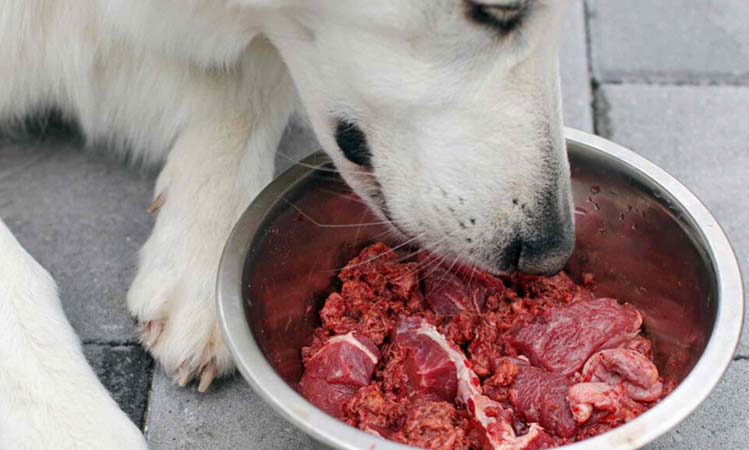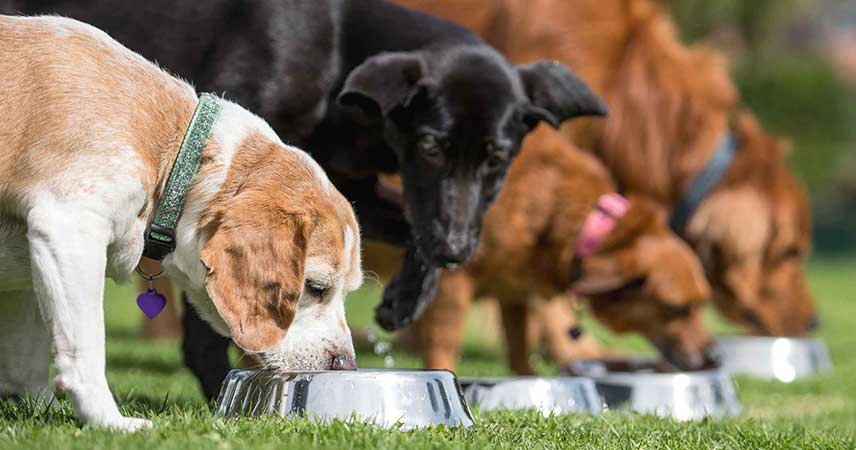A healthy gut equals a happy dog. Understanding gut issues in dogs is the first step in helping them build a strong, healthy gut!
Your dog’s gut health doesn’t just affect digestion — it plays a major role in their immune system, nutrient absorption, energy, and even behaviour. But when things go wrong, it can cause a lot of discomfort and disruption to your dog’s wellbeing (and yours).
In this blog, we’ll break down:
✔ The most common gut issues in dogs
✔ Gut Health and Australian Dogs: Local Factors to Consider
✔ Symptoms to look out for
✔ Causes of digestive problems
✔ How to care for your dog when they’re unwell
✔ Prevention strategies
✔ How PetWell’s all-natural DIGEST and CALM supplements can help
🐶 Why Gut Health Is So Important for Dogs
The gastrointestinal (GI) system is responsible for digesting food, absorbing nutrients, and housing trillions of gut bacteria that play a key role in immunity and mood regulation. When the gut is out of balance, your dog may experience everything from diarrhoea and vomiting to skin issues or chronic stress.
🩺 3 Most Common Gut Issues in Dogs

1. Inflammatory Bowel Disease (IBD)
IBD is a chronic condition caused by inflammation in the stomach or intestines. It disrupts nutrient absorption and leads to ongoing digestive issues.
Breeds more prone to IBD: German Shepherds, Boxers, Yorkshire Terriers
Symptoms: Chronic diarrhoea, vomiting, weight loss, abdominal pain
Causes: Genetics, food allergies, immune dysfunction, gut microbiome imbalance, stress
💡 PetWell DIGEST supports gut lining repair and healthy bacterial balance, which is key for managing IBD naturally.
2. Gastritis
Gastritis refers to inflammation of the
the stomach lining — often triggered by eating something they shouldn’t.
Breeds at risk: Shih Tzus, Labrador Retrievers, Great Danes
Symptoms: Vomiting, loss of appetite, lethargy, abdominal pain
Causes: Dietary indiscretion, toxins, infections, stress, some medications
🧘 For dogs whose gastritis is stress-related, PetWell CALM can help ease anxiety that disrupts digestion. It contains naturally occurring L-tryptophan, L-theanine, lemon balm, açai berries and other calming ingredients that work together to amplify the benefits.
3. Gastroenteritis
This is an inflammation of the stomach and intestines, often caused by bacterial, viral, or parasitic infections—or simply by eating spoiled food.
Breeds more prone: Cocker Spaniels, Miniature Schnauzers, Poodles
Symptoms: Diarrhoea, vomiting, dehydration, abdominal pain
Causes: Sudden diet changes, food sensitivities, infections, stress
💧 Keep your dog hydrated and consider gut-supporting supplements like PetWell DIGEST to aid recovery and prevent future flare-ups.
Read more about Dog Digestive Issues: Causes, Symptoms & Solutions
🇦🇺 Gut Health and Australian Dogs: Local Factors to Consider
Digestive health in dogs isn’t one-size-fits-all — especially here in Australia. Several local factors can influence how often gut issues appear and how they present in our fur family.
Common Triggers for Aussie Dogs
Dry food-heavy diets: Many Australian pets are still fed commercial kibble as a primary diet. These foods often contain fillers and artificial preservatives that are harder for dogs to digest, leading to bloating, constipation, or chronic gut inflammation.
Heat and dehydration: Australia's climate, particularly during summer, puts dogs at risk of dehydration, which can quickly lead to digestive issues like vomiting or diarrhoea. HYDRATION POST
Environmental exposure to parasites: Warmer regions like Queensland and parts of NSW can increase exposure to intestinal parasites like Giardia, especially around shared water bowls or public dog parks.
Popular Breeds and Digestive Vulnerabilities
Some of Australia's most loved breeds are more prone to digestive problems:
Border Collies – Often experience stress-related gut issues due to their high sensitivity and intelligence. That’s where PetWell CALM can help.
Labrador Retrievers – Prone to overeating, food allergies, and pancreatitis.
Cavalier King Charles Spaniels – Susceptible to GI inflammation and pancreatitis.
Staffies – Frequently affected by food intolerances and skin allergies that often link back to gut health.
Tailored Gut Support for Aussie Pets
Australian dogs benefit from targeted support — and that’s where PetWell shines. All PetWell supplements are made in Australia, with local pets in mind. Our DIGEST supplement supports a healthy gut microbiome and strengthens the digestive system, while CALM helps reduce stress, which is a major trigger for gut issues in anxious or highly strung dogs.
Together, they offer a natural, proactive way to support the gut health of Aussie dogs — no matter their breed, diet, or environment.
🚨 Signs Your Dog Might Have Gut Problems

Digestive issues can look different depending on the cause. Some signs to watch for include:
- Vomiting or diarrhoea (especially with blood or mucus)
- Excessive gas or abdominal pain
- Changes in appetite or weight loss
- Lethargy or low mood
- Changes in stool colour or consistency
- Frequent drooling or straining during defecation
These symptoms could be short-lived or indicate something more serious like IBD, pancreatitis or infection. Always speak to your vet if symptoms persist.
⚠️ What Causes Gut Issues in Dogs?
Some causes are simple — like a dog eating something they shouldn’t. Others are more complex and require long-term management. Common triggers include:
- Sudden diet changes
- Processed, high-filler dog foods
- Food intolerances or allergies
- Parasites (like Giardia or worms)
- Bacterial/viral infections
- Medications that irritate the stomach
- Environmental toxins
- Underlying conditions (liver/kidney disease)
- Stress or anxiety
🧴 Can Dogs Spread Gut Infections?
Yes, some gastrointestinal problems are contagious. Dogs can transmit infections via:
- Shared bowls, toys or bedding
- Sniffing or licking infected feces
- Contaminated water or surfaces
Practise good hygiene and isolate your dog if they’re sick to prevent spread.
💚 How to Care for a Dog with Gut Issues
- Keep them hydrated – Offer plenty of fresh water (consider adding electrolytes if they’ve had diarrhoea).
- Switch to a bland diet – Boiled chicken and rice is a good short-term option. Adding cooked, pureed pumpkin is also a good option.
- DIGEST Supplement – PetWell DIGEST supplement is packed with gut soothing, anti-inflammatory ingredients as well as probiotics.
- Monitor their symptoms – Track frequency of vomiting, bowel movements, and energy levels.
- Clean regularly – Disinfect bowls, bedding and any messes to prevent reinfection.
-
Visit your vet – Especially if symptoms worsen or last longer than 24–48 hours.
A healthy gut equals a happy dog. Understanding gut issues in dogs is the first step in helping them build a strong, healthy gut!
🛡️ How to Prevent Digestive Issues in Dogs
Prevention is always better than treatment. Here's how you can reduce the risk:
✅ Feed a high-quality, balanced diet
✅ Provide high quality, human – grade, freeze dried functional treats
✅ Avoid toxic foods for dogs – More on Dangerous Foods: What's Toxic for Dogs
✅ Introduce new foods slowly
✅ Stick to a deworming schedule
✅ Practise regular vet check-ups
✅ Limit exposure to contaminated environments
✅ Use stress-reducing aids if needed (hello PetWell CALM)
✅ Support gut health with a daily digestive supplement like PetWell DIGEST
🌿 Why PetWell DIGEST Is the Gut Health Game-Changer
PetWell DIGEST is crafted by a pet naturopath using only human-grade, all-natural ingredients that actively support digestion. It contains:
✨ Multi-strain live probiotics
🍄 Medicinal mushrooms (like chaga, maitake, reishi & turkey tail)
🌿 Marshmallow root and ginger for inflammation
💥 Natural enzymes for better nutrient absorption, and more
Whether your pet has a sensitive stomach or you're just wanting to boost their gut health, DIGEST is easy to mix into meals and suitable for both dogs and cats.

Read more about Natural Ways to Support Your Dog’s Digestion
Final Woof
Gut health is the cornerstone of your dog’s overall wellbeing. From immune support to mental clarity and even skin health — a happy gut means a healthier, happier dog.
Recognising the signs early and acting with a combination of diet, vet support, and natural supplements like PetWell DIGEST can make a world of difference.
PetWell DIGEST Reviews
"My Australian Shepherd, Stella, has long struggled with digestive issues. After trying PetWell DIGEST, her stool became firm within days, and her gas reduced significantly. We're so happy with the results and couldn't be happier!' Nina
"I just wanted to pass on the feedback, that we love your Petwell Digest supplement. We tested some other comparison brands, and nothing compared to the Petwell supplement. We’ve just switched back, and placed another order. Great product! Im excited to test out the treats next!" GM
"We used Digest on Sanyue when she was sick, vomiting and diarrhoea. Within 24 hours, she was on the improve. The ingredients in digest are incredible! We will keep her on it. Thank you" Vespa
🐾 Ready to support your dog’s gut health, naturally?
✅ Try PetWell DIGEST
✅ Add PetWell CALM if stress or anxiety is a trigger
✅ Explore THRIVE Immune Support to build resilience from the inside out
Disclaimer: The entire contents of PetWell emails and website are not to be taken as medical advice. The team at Pet Squad Pty Ltd trading as PetWell encourages you to make your own pet health care decisions based on your research and in partnership with a qualified pet healthcare professional.
Posted By Ayda Hornak - Trained in Canine Phycology and Natural Animal Nutrition Care
